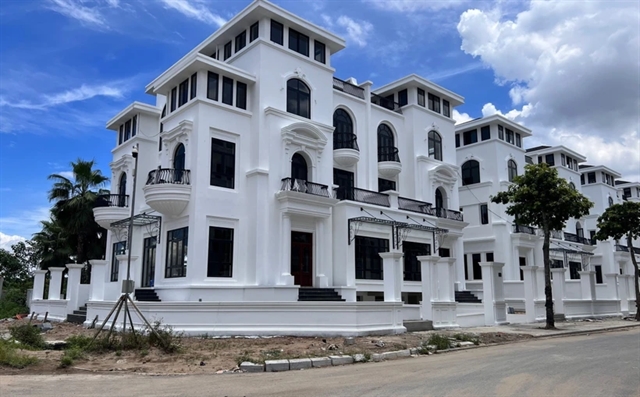 |
| HCM City is gradually running out of space for new townhouses and villas. — VNA/VNS Photo |
According to real estate consultancy Savills’ latest report, primary supply dropped by 40 per cent last year to 993 units, mostly from existing high-priced stocks.
The absorption rate fell to 29 per cent, with only 286 units being sold, a 73 per cent decline from 2022.
Supply of affordably-priced units was limited, while supply of dwellings costing over VNĐ30 billion (US$1.2 million) accounted for 67 per cent of supply.
Giang Huỳnh, head of research and the S22M platform at Savills, said scarcity of land in the city had driven up housing prices, causing the absorption rate to become considerably lower.
The supply of low-rise housing in the inner city was gradually falling, she said.
According to the city’s urban development plans for until 2030, the focus will be on high-rise housing to better utilise land and satisfy the large demand for housing.
Experts from real estate agency Cushman & Wakefield Vietnam said HCM City’s townhouse market slumped last year as most investors took a wait-and-watch attitude.
According to Savills Vietnam, 2024 will see around 1,400 townhouses enter the primary market in HCM City, 65 per cent of them costing VNĐ20 – 30 billion, and the high prices will keep absorption rates low.
The housing market is gradually moving to the city’ neighbouring provinces.
For example, Bình Dương will have over 3,400 new dwellings (90 per cent of them below VNĐ10 billion), and Đồng Nai will have around 2,900 (41 per cent at VNĐ5-10 billion, 29 per cent at VNĐ10 – 20 billion).
As infrastructure develops, travel between HCM City and these areas will become faster.
According to Savills, the city’s townhouse supply is likely to reach 5,500 units by 2026, or equal to 78 per cent of Bình Dương’s and just 40 per cent of Đồng Nai’s. VNS